Why You Shouldn't Be a Jack of All Trades
What most people forget is that life is not about the situation in which you find yourself.
It's about the level of "deep domain expertise" that you possess.
This is what the best scientific research shows.
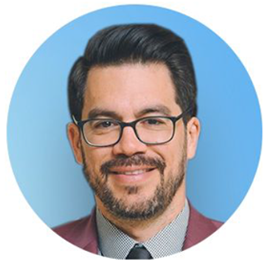
Tai Lopez
Dec 01, 2014
In the modern world, you are surrounded by generalists.
Jack of all trades.
Being a generalist won't get you far.
Stop being a generalist.
It's like Steve Martin says to people who want to break into show business: "Be so good they can't ignore you."
Only when you have deep domain expertise will you be so good that even the haters will be forced to stop and pay attention.
If you remain a jack of all trades you'll stay ignored.
In "Bounce", today's book-of-the-day, Matthew Syed talks about the myth of inborn talent.
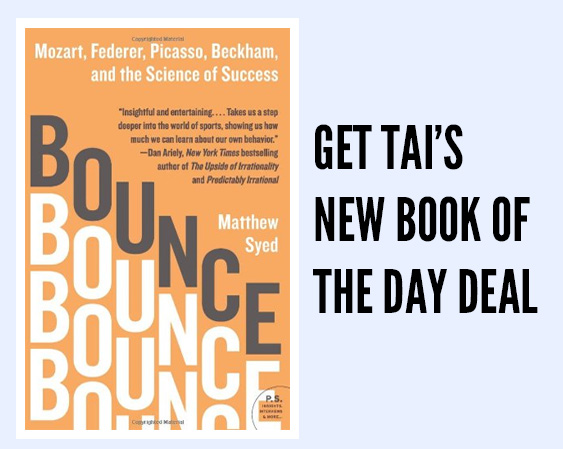 I ran across this book several years ago and it's made its way to my top 150 books that I read over and over again at least once a year.
I ran across this book several years ago and it's made its way to my top 150 books that I read over and over again at least once a year.
For Thanksgiving, I visited the Amish and Joel Salatin's farm in Virginia and I read "Bounce" again on the airplane and recorded a video for you out in the snow by the chickens and pigs.
This book will scare you.
This book will inspire you.
It all depends how you perceive it's conclusions.
Here are some of the book's main points:
1. It takes reps and sets: “It is the quality and quantity of practice, not genes, that is driving progress."
Arnold Schwarzenegger talks about the same thing in his autobiography, “Total Recall”. It's all about reps and sets when it comes to weights. There are a few shortcuts but you still need sheer volume of practice to get good at anything.
And it's not just the body and weight lifting this applies to.
Ignore all the newfangled books that are being published about how you can bypass sheer volume of practice.
It's not really about shortcuts, tricks, and the genetics you were born with.
It's about practice.
2. Your passion quotient: “Every endeavor pursued with passion produces a successful outcome regardless of the result."
This was the motto of one of the expert coaches that the author interviewed.
At different times in your life, you probably grappled with big decisions: which major you should pursue in college, which diet plan you should follow, which career you should pursue, which person you should date...
And you might've been paralyzed because you were concerned about making the right or wrong decision.
But forget that obsolete, black-and-white type thinking.
This book lays out a completely new way to think about those type of decisions.
What if the more important thing is rewiring the neural pathways of your brain?
The key factor is not whether one thing is right or wrong (it's mathematically impossible to know if one decision was better than the other unless you could live in two alternate, parallel universes and then look back at both decisions outcome).
The key, instead, is that when you do something, do it with intense passion, even if it turns out to be the "wrong" thing in the long run.
At least you will have been training your brain to do something with massive focus, energy, and passion.
You can always pivot and do something else later.
Whatever you do don't do things half-hearted because then you're training your brain to be a generalist.
As Samuel Johnson said, "The chains of habit are too weak to be felt until they are too strong to be broken."
Live in a world where people struggle to really grab hold of anything and take ownership of it.
Warren Buffett was asked for his best career advice and he said to do something with passion because: "The truth is, so few people really jump on their jobs, you really will stand out more than you think. You will get noticed if you really go for it.”
3. The ten dark years: "How long do you need to practice in order to achieve excellence? Extensive research, it turns out, has come up with a very specific answer to that question: from art to science and from board games to tennis, it has been found that a minimum of ten years is required to reach world-class status in any complex task.
In chess, for example, Herbert Simon and William Chase, two American psychologists, found that nobody had attained the level of an international grand master “with less than a decade’s intense preparation with the game.” In music composition, John Hayes also found that ten years of dedication is required to achieve excellence.
An analysis of the top nine golfers of the twentieth century showed that they won their first international competition at around twenty-five years of age, which was, on average, more than ten years after they started golfing.
The same finding has been discovered in fields as diverse as mathematics, tennis, swimming, and long-distance running.”
So leave behind all your get-rich-quick scheme, lottery-ticket mentality, be-a-sucker concepts and follow the clear ABCD steps it will take for you to be great.
A. Know yourself.
B. Select your industry and life's focus and don't deviate for a decade or more.
C. Develop deep domain expertise.
D. Reap the harvest and cash in and enjoy the fruits of your labor.
Now, there are quite a few other fascinating points you need to know from this book, so I recorded a quick video for you to watch.
COMMENTS
Best of Tailopez
-
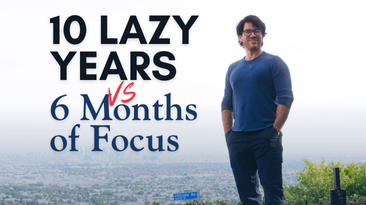 Ten Lazy Years Can Be Erased With Six Focused Months
Ten Lazy Years Can Be Erased With Six Focused Months -
 Why Men's Testosterone Is Half Their Grandfather's with Ben Greenfield
Why Men's Testosterone Is Half Their Grandfather's with Ben Greenfield -
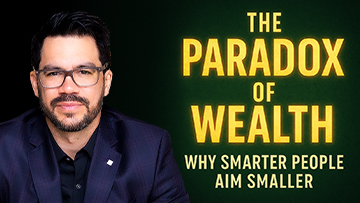 The Paradox of Wealth: Why Smarter People Aim Smaller
The Paradox of Wealth: Why Smarter People Aim Smaller -
 Mamma Mia in West Adams: Tai Lopez Finds LA's Pasta Holy Grail at Cento Pasta Bar
Mamma Mia in West Adams: Tai Lopez Finds LA's Pasta Holy Grail at Cento Pasta Bar -
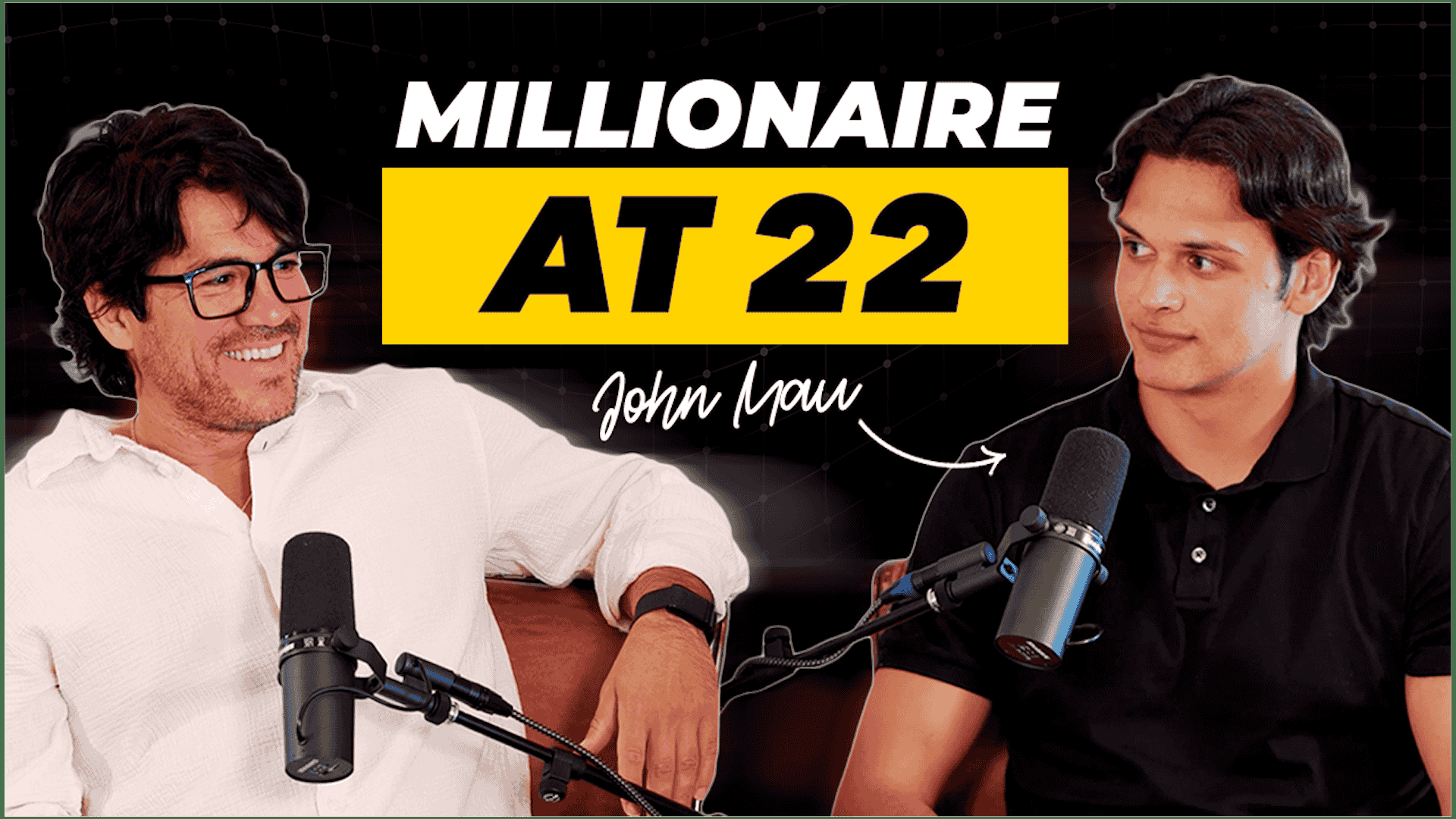 Sales Training, Scaling, and Breaking Objections: Tai Lopez with Johnny Mau
Sales Training, Scaling, and Breaking Objections: Tai Lopez with Johnny Mau

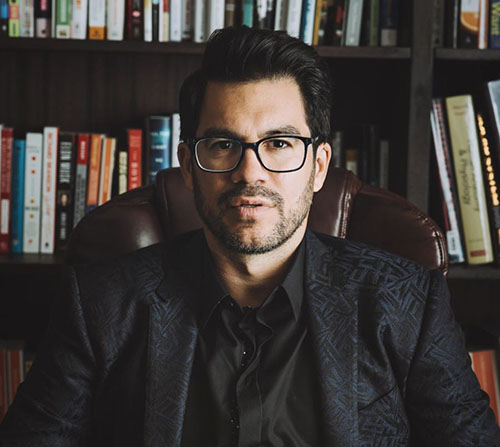
0 Comments